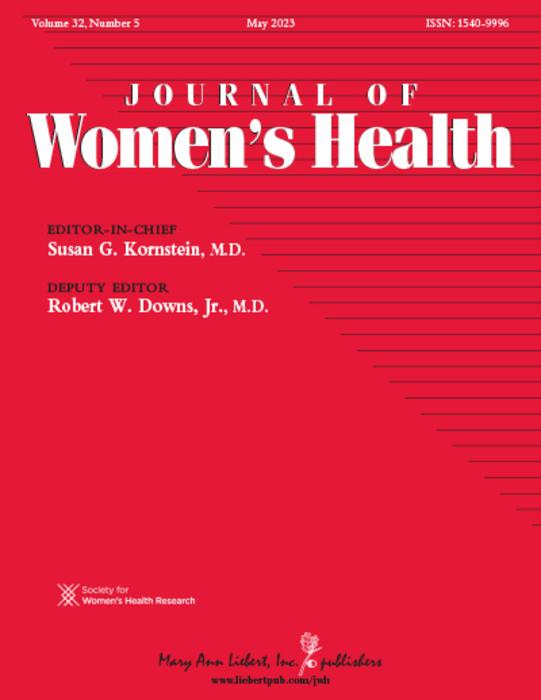A new study shows that among women with congenital heart defects (CHD), reproductive counseling, concerns, and experiences differ by disability status. The study, which focused on contraceptive and pregnancy counseling, and pregnancy concerns and experiences, is published in the peer-reviewed Journal of Women’s Health. Click here to read the article now.

Credit: Mary Ann Liebert Inc., publishers
A new study shows that among women with congenital heart defects (CHD), reproductive counseling, concerns, and experiences differ by disability status. The study, which focused on contraceptive and pregnancy counseling, and pregnancy concerns and experiences, is published in the peer-reviewed Journal of Women’s Health. Click here to read the article now.
Sherry Farr, PhD, from the Centers for Disease Control and Prevention, and coauthors, based their findings on data from 778 women ages 19-38 years with CHD. The investigators reported that women with disabilities were 1.4 more likely than women without disabilities to have ever had a conversation with their provider about safe contraceptive methods, and 2.3 time more likely to have received advice to avoid pregnancy because of their CHD.
Approximately half a million adolescent and adult women are living with CHD in the U.S. Women with CHD are at increased risk of pregnancy complications and adverse outcomes, although most will have healthy pregnancies. Pregnancy is contraindicated only among a small subset. Among women with certain types of CHD, certain types of contraceptives are contraindicated.
In an accompanying Editorial titled “We Can Do Better – Reproductive Health Counseling for Women with Congenital Heart Disease and Disabilities,” Natasha Wolfe, MD, from the University of Pittsburgh School of Medicine, states: “Looking closely at the numbers, 8% of women with CHD and no disabilities were told to avoid pregnancy, while 18% of women with CHD and at least 1 disability were told to avoid pregnancy. From a cardiac perspective, 18% of all women with CHD and disabilities seems like a high number to be told to avoid pregnancy altogether.”
“This study shows us that we can need to do better to help women with CHD understand her unique pregnancy risk, know how to safely prevent unplanned pregnancy, and make an informed decision on the right time to pursue having a child of her own,” says Dr. Wolfe.
About the Journal
Journal of Women’s Health, published monthly, is a core multidisciplinary journal dedicated to the diseases and conditions that hold greater risk for or are more prevalent among women, as well as diseases that present differently in women. Led by Editor-in-Chief Susan G. Kornstein, MD, Executive Director of the Virginia Commonwealth University Institute for Women’s Health, Richmond, VA, the Journal covers the latest advances and clinical applications of new diagnostic procedures and therapeutic protocols for the prevention and management of women’s healthcare issues. Complete tables of content and a sample issue may be viewed on the Journal of Women’s Health website. Journal of Women’s Health is the official journal of the Society for Women’s Health Research.
About the Publisher
Mary Ann Liebert, Inc. is a global media company dedicated to creating, curating, and delivering impactful peer-reviewed research and authoritative content services to advance the fields of biotechnology and the life sciences, specialized clinical medicine, and public health and policy. For complete information, please visit the Mary Ann Liebert, Inc. website.
Journal
Journal of Women s Health
DOI
10.1089/jwh.2022.0395
Method of Research
Case study
Subject of Research
People
Article Title
Reproductive Health Counseling and Concerns Among Women with Congenital Heart Defects With and Without Disabilities
Article Publication Date
12-May-2023




